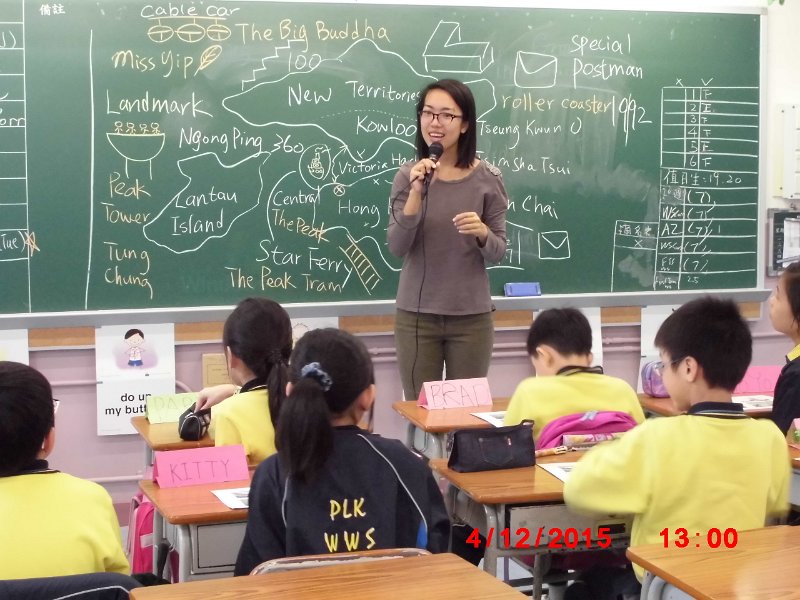|
英文科 Introduction
Why is it so important for our children to learn English?
It is
• to extend their knowledge and experience of other people’s cultures;
• to prepare them for the demands of an ever-changing society;
• to widen the scope of opportunities available to them
Due to the extreme importance and relevance of English, we, as educators, must strive to provide an optimal learning environment that is both supportive and challenging for the students. Within this supportive framework, students will be able to take risks with the language and experiment with it in creative ways which foster independent thinking.
Target
The Subject Target for English Language is for learners to develop an ever-increasing capability to use English:
• to think and communicate;
• to acquire, develop and apply knowledge;
• to respond and give expression to experience
and within these contexts, to develop and apply an ever-improving understanding of how language is organized, used and learned.
Daily activities
The NET scheme:
|
This year, our school has been part of the NET scheme which is being implemented by the government. We have two NETs (Native English Teachers) who are at our school every week. The NETs are responsible for creating and maintaining an English environment in the school, and arousing students’ interest in learning English.
The NETs work in collaboration with the local English Teachers to plan and teach lessons for P.1 to P.6 students. These lessons integrate the four skills of reading, writing, listening and speaking in a communicative fashion. Creative language learning activities and games which are fun and intrinsically motivating for students have been incorporated into the lessons.
|
 |
 |
Phonics has also been incorporated into every lesson, with a few letter-sounds being focused on each lesson. Students have been involved in activities such as reading and reciting poems and chants (with actions), singing songs (with actions), reading big books, creative writing, presenting their work, conducting surveys, and acting out role plays.
Lessons are conducted within a learner-centred classroom that focuses on interacting and communicating meaningfully in English.
|
|
Young students learn best when activities, tasks and projects are meaningful, relevant and enjoyable. Through the provision of many language experiences, we are providing students with many opportunities to listen to, speak, read and write English.
For more information on the NET scheme, you may visit www.netscheme.org.hk
|
English Activities
|
Months
|
Activities
|
|
Sep-Jun
|
English Morning Assembly on Mondays
|
|
Oct
|
讀出個未來–Reading and Show English Programme
|
|
Oct
|
Penmanship Contest
|
|
Oct
|
Halloween Fun Fair
|
|
Oct-Jun
|
Lunch Recess Activities with NETs
|
|
Oct-May
|
Drama Activities
|
|
Oct-May
|
English Gifted Education Programme
|
|
Oct-Dec
|
2016-2017 Asian English Usage Contest (Hong Kong)
|
|
Oct-Dec
|
HKMA David Li Kwok Po College Hong Kong Inter-Primary Schools English Speech Competition 2016/17
|
|
Nov-Dec
|
Speech Festival
|
|
Nov-Dec
|
P.6 Mock Interviews conducted by NETs
|
|
Nov-Mar
|
Classroom Vocabulary Competition 2017
|
|
Nov-Mar
|
The 9th Create My Smart Storybook Contest
|
|
Nov-May
|
Student-Teacher Scheme
|
|
Jan
|
My Australian Christmas Card Competition 2017
|
|
Jan-Jun
|
English Writing Competitions
|
|
Jan-Feb
|
P.2 Co-reading Scheme
|
|
Mar
|
Inter-Primary Schools English Public Speaking Workshops and Contest 2017
|
|
Mar-Apr
|
P.1 Co-reading Scheme
|
|
Apr
|
Easter Activities
|
|
Apr
|
1930’s Radio Play – Twelfth Night – Shakespeare Retold (SA01P)
|
|